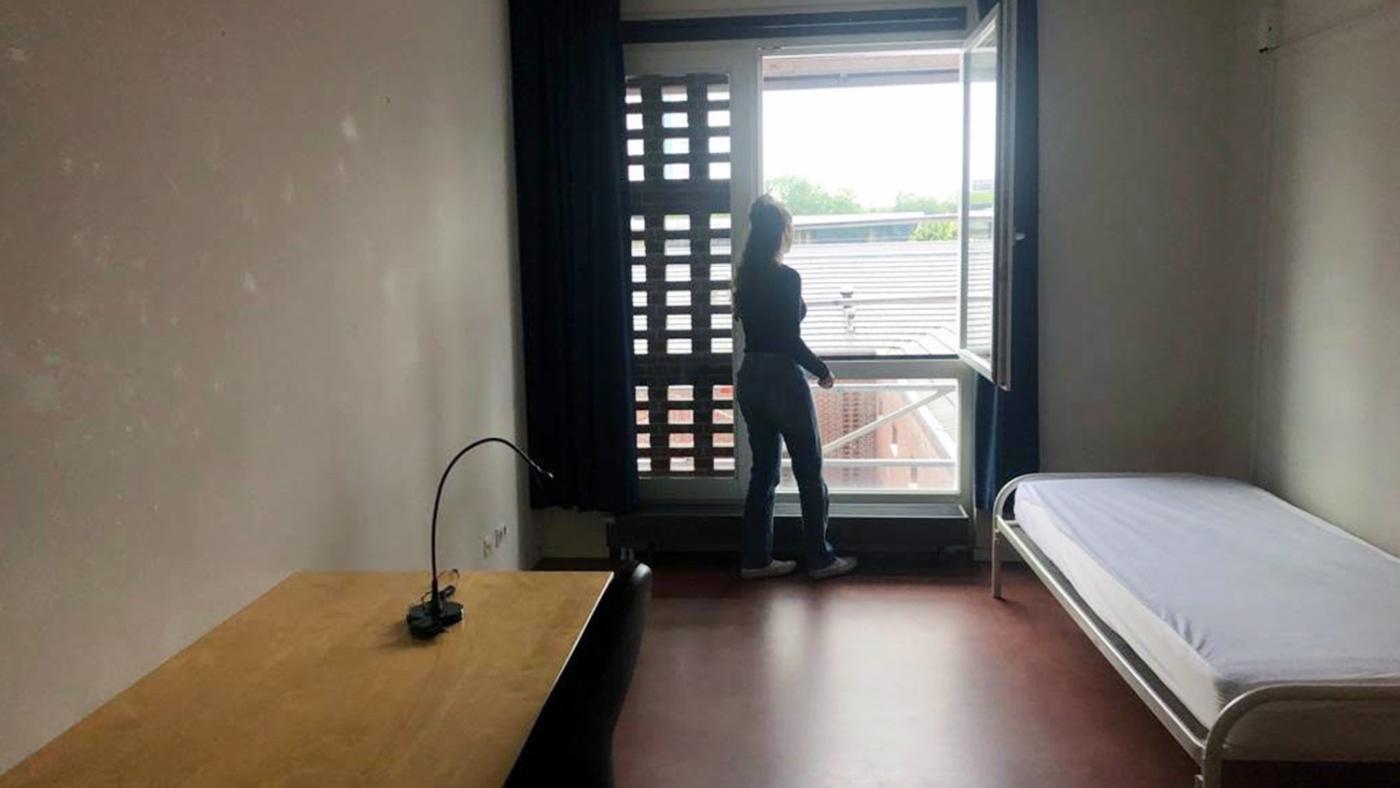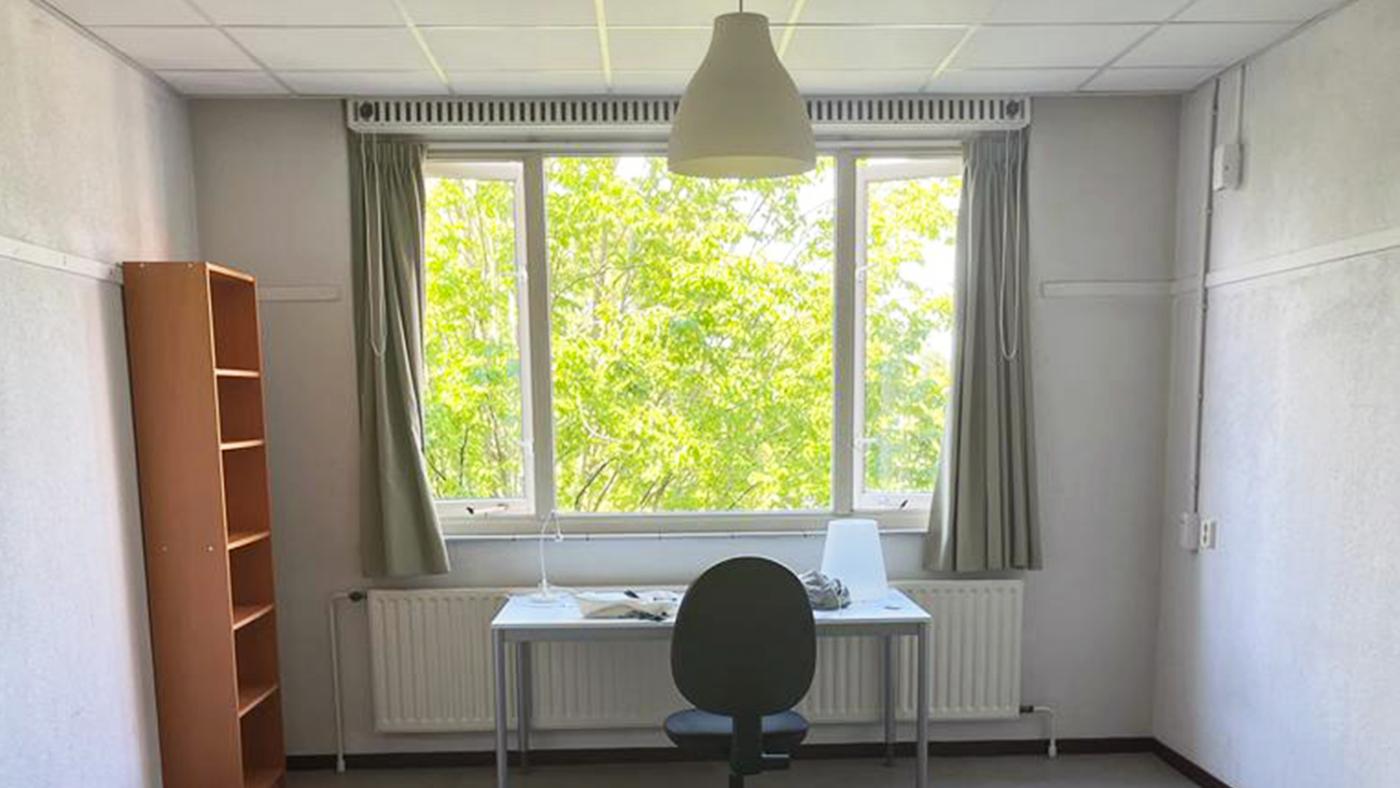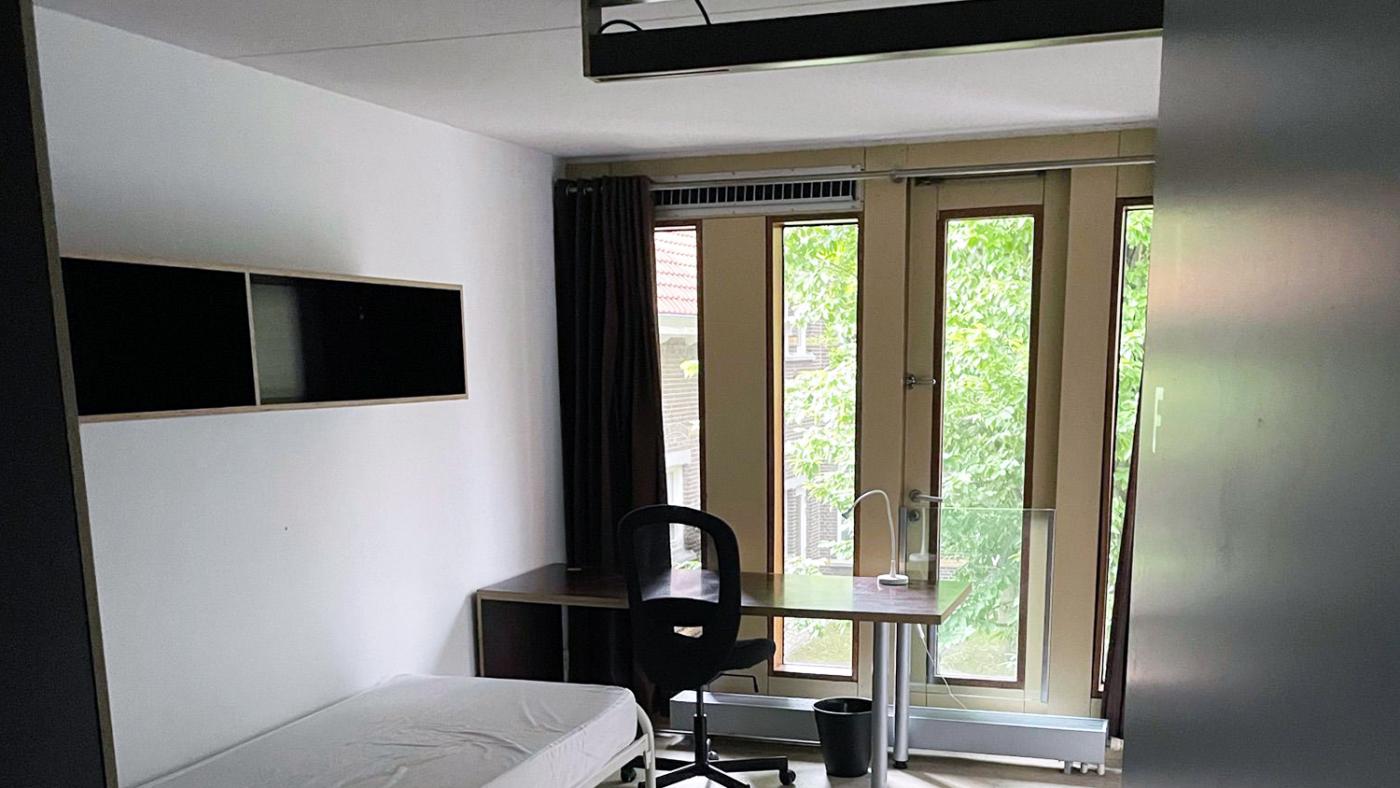Costs much higher than in previous years
UCU students angry about room damage claims

The 720 students who live on the UCU campus have to change rooms each year. After they leave the rooms, the organisation Lekstede Wonen, which owns the complex, verifies whether any damage has been caused to the rooms, the furniture, and the common areas.
If there is anything that needs to be repaired or replaced that hasn't been notified before, Lekstede charges those costs from the University College, which then settles it with the students in question. "It can range from a broken garbage bin lid, which costs only a couple of euros, to a completely broken down unit, full of trash bags lying around," explains the Managing Director Sjoerd Bosgra.
According to him, this arrangement had never caused any problems until now. But, this year, the total amount that students have to pay for damage claims has become almost twice as high compared to previous years. In total, students used to be asked to pay back 20,000 to 30,000 euros but now they're being asked for 42,000 euros.
Owed an explanation
UCU students are angered by the increased costs. Some of them have been charged hundreds of euros, which were taken from their deposit.
In an open letter to UCU's management, 195 people who lived in the complex last year demanded an explanation. Accompanying the letter was a long list of anonymous objections to damage claims.
In addition, students manifested their opposition to the procedure itself, in which it is up to students to prove that they didn't damage anything. They think this is "illegal", which is why they refuse to agree to the charges and demand their money back.
Not illegal
The answer came early this month when UCU acknowledged that some of the complaints are, indeed, well-founded. For this reason, students are asked to specify the anonymous accusations in a complaint form. UCU says it is prepared to assess matters "generously".
The University College adds that the procedure is not illegal, although it does agree that it should have given students a clearer explanation about it. The students are not satisfied, though: they would like the procedure to be revised.

Plastic bin worth 1.99 euro
UCU student Penelope van der Meer was one of the initiators of the open letter. She also wrote an inflamed article about the issue for the campus magazine, Boomerang.
According to her, it looks like students are being charged for regular maintenance costs such as those related to wall painting and couch replacements. In addition, she says she has evidence of patently incorrect claims in which students are charged for things they have nothing to do with. For example, she claims to have photographic evidence that a student had to pay for a lamp that was not broken the moment they left the room.
Last but not least, she considers some of the charges to be unreasonably high. "They charged 11 euros for a plastic bin worth 1.99 euro."
Burden of proof
To Penelope, the most important thing is to put an end to a situation in which it is up to the residents of the international campus to prove they were not responsible for the reported damages. In her view, the entire procedure surrounding damage claims at UCU is "opaque".
"Everyone lives here for two to three years, during which they are all pretty busy studying. Then, they leave. That's why they don't bother opposing the procedures or digging deeper into them. That seems to be exactly what they are betting on."
Managing Director Sjoerd Bosgra can't say why the amount charged this year is so much higher than the one charged in previous years, neither can he say why some claims are probably unfounded — as he himself observed. He prefers not to draw any conclusions before all the specific complaints are in. "First, we want to get an overview of all the objections. Only then we will take stock. We certainly will talk to Lekstede if we conclude there are reasons for doing so."
According to a spokesperson for Lekstede, the organisation that owns the property, all costs that "are not related to routine daily maintenance or normal wear and tear" are charged. In an e-mail to DUB, the spokesperson underscores that UCU only has to pay for costs that are actually incurred for replacing parts of the interior or repairing damages.
Lekstede adds that this year's inspection found significantly more damage compared to previous years. As an example, they mentioned the costs of cleaning rooms and common areas that were left in an "extremely dirty" state by the residents and the costs of replacing "wet and stained mattresses". They don't know why more damage costs have to be charged this year.

Clarity
Advised by UU's real estate lawyer, the director stresses that the current procedure does not seem unreasonable. According to the specialist, Dutch tenancy law does allow the burden of proof to be placed on the tenant if the state of the room or property is determined the moment the tenant moves in. What sets UCU's case apart is the fact that students don't sign a normal rental agreement. Instead, they sign a combined "Campus Agreement" for the studies they follow and the ten months a year in which they are entitled to a room. It is not entirely clear if Dutch tenancy law applies to this case.
Bosgra: “In any case, we're not looking into what other landlords are doing. But we've come to realise that we should be much clearer about duties and responsibilities. We will certainly do that in the Campus Agreement."
According to the managing director, who emphasises that he has consulted the Student Council closely on the matter, an approach that would put the burden of proof on the landlord would lead to higher costs. "All students leave their rooms on the same day. If Lekstede has to verify possible damages while students are still there, they will need more staff members, which costs much more money."
Money back
Penelope van der Meer recommended fellow students fill in the complaints form. "It looks like this is the only way to get your money back in the short term."
Other than that, she thinks that the management team took too long to answer the students' open letter and they don't understand students' wishes much.
"The management team seems to always want to delay things, probably in the hopes that the next generation of students will forget about it. But we want this to change. Students have been really vocal about it: they want clarity and they want proof."
Van der Meer adds that she and other students will look into the possibility of taking further steps. In the meantime, members of the university council have also asked questions about the issue to UU's Executive Board, which said it prefers to wait and see how UCU will handle the situation.